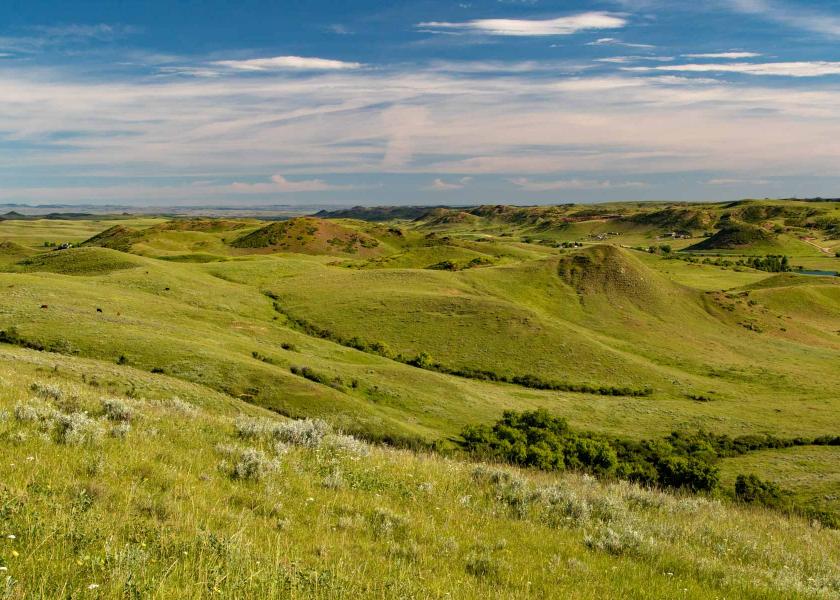Ranchers and Farmers' Input Adopted In 30x30 Guidelines

The National Cattlemen's Beef Association (NCBA) and Public Lands Council (PLC) recognized the inclusion of agricultural producers' recommendations in the Biden administration's conservation goals report.
The report details the administration's approach to conserving 30 percent of the nation's land and waters by the year 2030 — an initiative previously called 30x30 and now dubbed "America the Beautiful." The report lays out a 10-year roadmap for conservation that includes many of the priorities that are most important to cattle and sheep producers, including the protection of private property rights, learning from successful working lands management, and leveraging the expertise of ag producers for the benefit of lands, wildlife, and all land users.
"We are pleased to see USDA and DOI incorporate many of the recommendations of America's farmers and ranchers into this conservation plan. This is a productive starting point that builds on the input of a diverse array of stakeholders — and moving forward, our focus will be on holding the administration and federal agencies to it," said Kaitlynn Glover, NCBA Executive Director of Natural Resources and PLC Executive Director. "Over the next decade, livestock producers will continue doing what they've done for generations — manage their lands in a way that promotes conservation and good environmental outcomes, and share that expertise with federal agencies."
"If you want to see successful examples of protecting open spaces, improving the health and resiliency of public lands, and balancing durable conservation with multiple use, look no further than American cattle and sheep producers," added Glover. "We look forward to continuing our dialogue with the administration to make sure that the agencies implementing 30x30 leverage the expertise of our producers and reward them for their good work on the ground."
One of the report's six initial recommendations for the "America the Beautiful" initiative focuses specifically on agricultural producers. NCBA and PLC have been in constant and proactive communication with the administration to make sure the White House understands the vital role ag producers play in safeguarding our natural landscapes. The report includes recommendations to:
- Incentivize voluntary conservation efforts and provide new sources of income for American farmers, ranchers, and foresters
- Improve the effectiveness of relevant USDA conservation programs through the 2023 Farm Bill
- Support the voluntary conservation efforts of private landowners
- Leverage public-private partnerships and voluntary measures to improve targeted populations of wildlife
- Create jobs in rural America that support science-driven stewardship and conservation efforts
NCBA and PLC have long advocated for conservation policy that is based on science and fact, not emotion or political rhetoric. Livestock producers have an excellent story to tell on conservation, climate, and environmental issues:
- Direct emissions from cattle account for only two percent of the United States' overall greenhouse gas emissions.
- Livestock grazing significantly improves soil health, increasing the capacity of grasslands to sequester carbon out of the atmosphere.
- The U.S. cattle and beef industry has had the lowest greenhouse gas emissions intensity in the world since 1996.
- Between 1961 and 2018, the U.S. beef industry reduced emissions by more than 40 percent through continued sustainability efforts and improved resource use.
- Last year, corn going to feed beef cattle represented only 7 percent of all the harvested corn grain in the United States.







